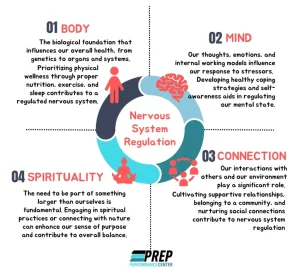
Intermittent fasting (IF) is one of the most popular health and weight loss trends. But IF is more than just a diet; it’s an eating pattern that cycles between periods of fasting and eating. Back in the hunter-gatherer days, it was normal for humans to go extended periods without food.
Weight Loss
Whether you’re looking to lose weight or simply maintain your current weight, intermittent fasting may help. Studies suggest that it can be just as effective as calorie-restricted diets at helping people shed excess weight.
It can also improve the health outcomes of those who are overweight or obese, such as blood pressure and cholesterol levels, and reduce inflammation. Fasting can even boost your brain and mental function, with research showing that it enhances verbal memory in human adults and increases working memory in children.
Intermittent fasting involves eating within a specific time window each day, which can be adjusted to fit your schedule. The most common approach is the 16/8 method, in which you eat during an 8-hour period each day — for example, between 10 a.m. and 6 p.m. Many people find it easier to stick with this plan than trying to avoid breakfast or avoiding meals later in the day, Kumar says.
Heart Health
In addition to helping you lose weight, intermittent fasting has also been shown to improve heart health. Some IF patterns involve eating normally for most days of the week and then limiting calories on “fast” or “feast” days. During feast days, experts recommend choosing healthy foods that are rich in nutrients and provide you with the energy you need to live your life.
The most common daily approach to IF is called time-restricted eating, which involves only eating within a certain window of the day (often eight hours). This type of IF helps boost metabolism and burn fat by lowering insulin levels and increasing norepinephrine, a hormone that causes your body to break down stored fat for energy. However, before trying any diet that restricts when you eat, talk to your doctor to make sure it’s safe for you, Kumar says. This is especially important if you take any medications, particularly blood pressure or diabetes drugs.
Blood Sugar Control
In addition to promoting weight loss, intermittent fasting may help you maintain a healthier blood sugar level by curbing cravings for sugary foods and snacks. That’s because when you don’t eat regularly, you’re less likely to pack your eating window with high-calorie junk food or super-sized fried items. Moreover, research has shown that intermittent fasting boosts working memory in animals and improves heart health in humans.
According to Johns Hopkins neuroscientist Mark Mattson, our bodies evolved to go long periods without eating, which may help explain why IF is so beneficial for the body. But it’s important to note that eating a healthy diet that includes lean protein, whole grains and fruits and vegetables is crucial for maintaining healthy blood glucose levels, especially if you’re on medications to treat diabetes or pre-diabetes. Going too long without eating can actually backfire and encourage the body to start storing fat as it starves, which could be dangerous.
Mental Health
Intermittent fasting boosts production of a protein called brain-derived neurotrophic factor (BDNF), which promotes neuronal survival, growth and plasticity. It also helps increase neurotransmitters that send messages between neurons. This supports memory and cognitive function.
Research on intermittent fasting suggests it may improve a number of mental health issues, including anxiety and depression. In addition, it increases verbal memory and working memory performance, according to studies in humans and animals.
If you decide to try intermittent fasting, be sure to choose a plan that allows you to meet your nutritional needs. Eating a healthy diet of leafy vegetables, fruits, whole grains, lean proteins and healthy fats is important. Avoid processed and sugary foods during your fasting periods. This will help ensure that you’re getting the best possible results from your regimen. This is particularly true if you want to lose weight. If you consume too many calories during your eating windows, you will sabotage your efforts to lose weight.







